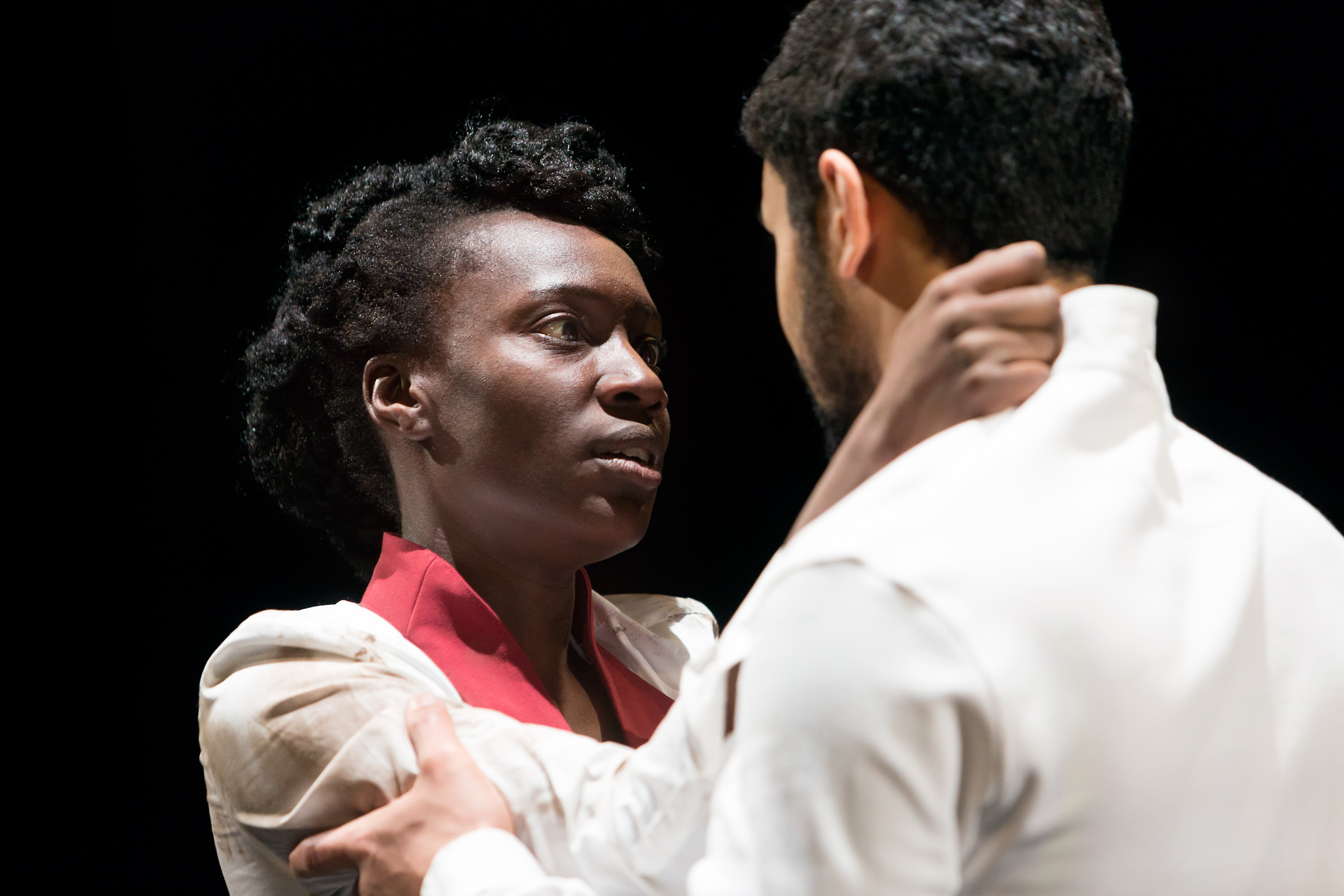
upstaged rating: 



The House of Bernarda Alba is a wholly unique performance for a number of reasons. Federico Garcia Lorca’s formidable text, in a wonderfully uncompromising translation by Jo Clifford which is set within the distinctive confines of Manchester’s Royal Exchange Theatre. Perhaps what makes this performance so special is that it is a co-production with Graeae, an all-female disabled-led theatre company. Director Jenny Sealey weaves British Sign Language, captions and audio description into the performance adding further meaning to Lorca’s rich text, while the cast of Deaf and disabled actors take centre stage to showcase their extraordinary talents and challenge cultural preconceptions.
In The House of Bernarda Alba, the Royal Exchange have peeled away the walls on a house during a period of mourning. Kathryn Hunter takes the central role of Bernarda Alba, an old widow who rules her household and wields absolute control over the lives of her five unmarried daughters. Hunter is dangerously deceptive as Bernarda Alba, her diminutive and fragile frame purely a distraction – she exudes dominance from the beginning to end of this performance. Ruling with a silver topped cane she instils fear in her daughters and those who serve her. At her most dangerous when she is resting in her chair – latent, unpredictable and deeply frustrated. Kathryn Hunter is extraordinary, exuding matriarchal power at the helm of a phenomenal cast.
Liz Ascroft’s heptagonal stage is set with seven chairs, providing a simple backdrop for the action as it unfolds. The Royal Exchange’s in-the-round performance space further fuels the enclosed world that the Alba daughters inhabit. The captions are shown on screens around the theatre; Jenny Sealey and Jo Clifford have moulded the text admirably to fully incorporate British Sign Language and audio description into the performance. This must have been quite a challenge but adds a further dimension to Lorca’s poetry. The mechanics of communication, or the lack of, becomes a striking theme.
There were strong performances all around with some beautiful moments shared between Kathryn Hunter as Bernarda Alba and Nadia Nadarajah as the soon to be married and eldest daughter, Angustias. Hermon Berhane gives an emotive performance as Adela, adding a sense of hope, sexuality and mischief.
At times, some of the captioning seemed like more of a distraction than a help – as the screens were quickly shuffled through in a bid to catch up with the action on stage. However, I believe that these small issues will be tackled and resolved by Jenny Sealey and the team. Despite this, The House of Bernarda Alba is a hugely successful production – captivating and unique – a useful and expressive reworking of Lorca’s classic.
-Kristy Stott
The House of Bernarda Alba runs until 25th February 2017 at Manchester’s Royal Exchange Theatre and You can buy your tickets here.

